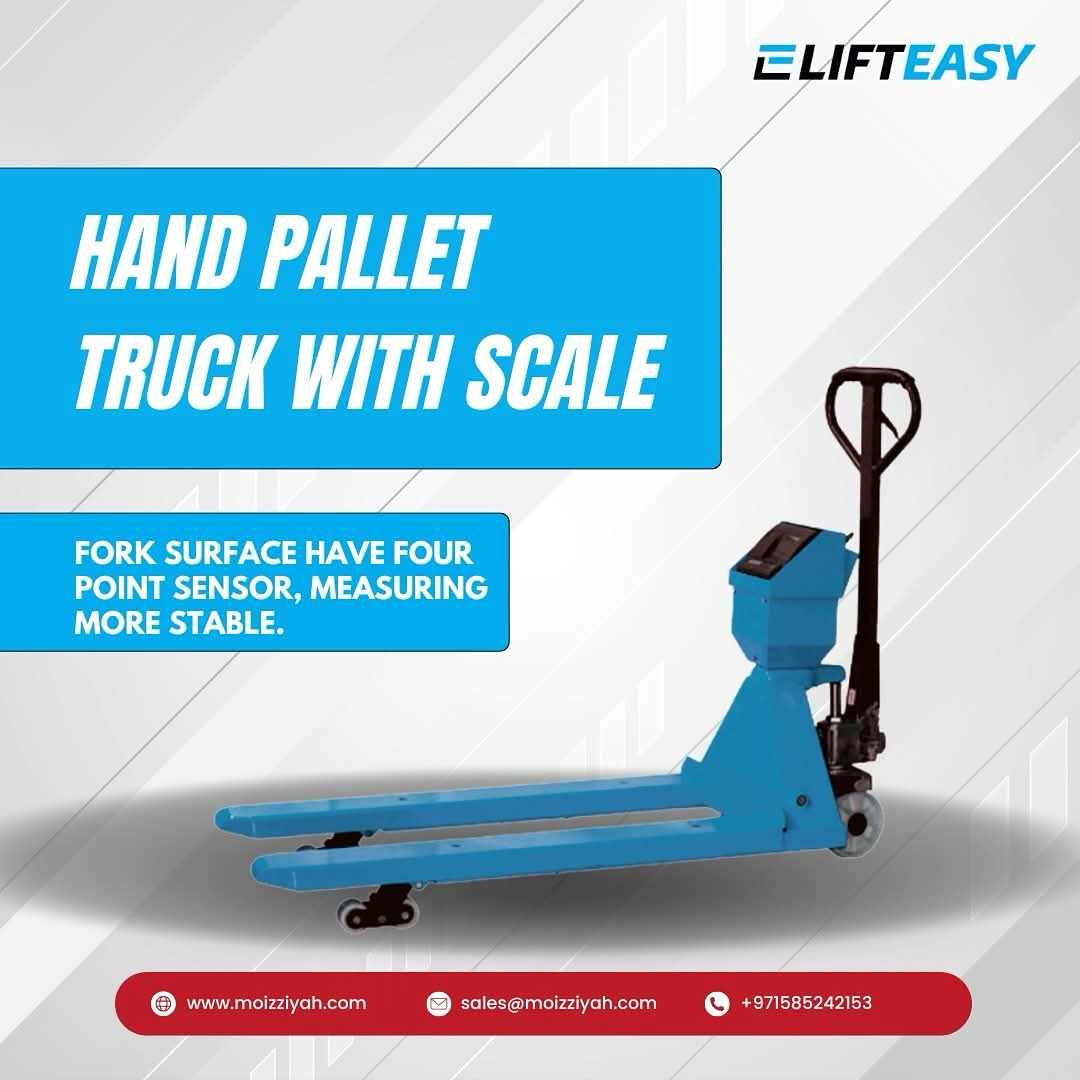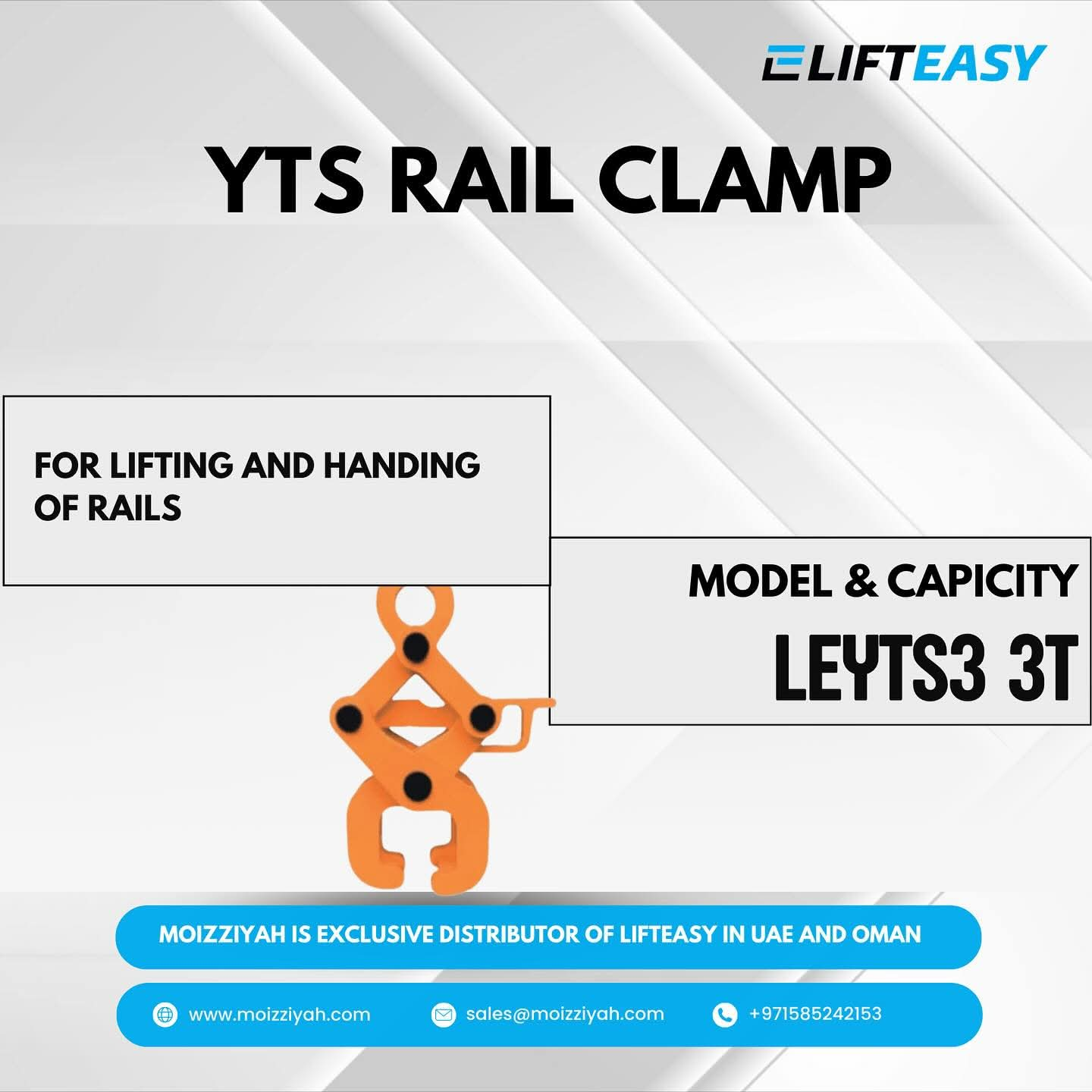
Al Moizziyah Trading Co LLC
Office 43-44, Dubai Municipality Car Parking,
Al Nahdha St,
Al Fahidi,
Dubai,
Al Moizziyah Trading Co LLC is one of Dubai’s emerging leaders in industrial equipment supply, with a sharp focus on material handling and lifting solutions. Established in 2024, the company has swiftly positioned itself as a trusted provider for industries requiring robust, efficient, and safe handling systems. Located in a prime spot at Office 43-44, Dubai Municipality Car Parking, Al Nahdha Street, Al Fahidi, Dubai, UAE, and near the UAE Central Bank, Al Moizziyah caters to a diverse clientele, including logistics hubs, factories, warehouses, and construction firms. Their operation hours are from 8:00 AM to 7:00 PM, making them accessible throughout the business day for consultation, supply, and on-site support.
Despite being a new entrant in 2024, Al Moizziyah Trading Co LLC has quickly earned a reputation for reliability, technical expertise, and customer-first service. Their success is built on sourcing high-performance equipment from globally recognized manufacturers and maintaining strict quality control to ensure durability, safety, and precision. The company’s team is composed of experienced professionals with deep industry knowledge who assist clients in selecting the right tools for their specific applications.
Al Moizziyah’s strength also lies in their commitment to after-sales support, offering guidance on operation, safety practices, and maintenance of all supplied equipment. Their attention to detail and dedication to industry standards have earned them recurring business from industrial clients looking for not just products—but long-term partnership and support.
Al Moizziyah Trading Co LLC specializes in two key categories of industrial equipment:
Material Handling Equipment
Bottle Jack – Compact and powerful for lifting heavy loads with hydraulic precision.
Hand Pallet Truck – Ideal for warehouse movement of palletized goods.
Hydraulic Scissor Lifting Table – Provides stable lifting for packaging and assembly lines.
Long Fork and Extra Narrow Pallet Trucks – Tailored for high-density storage and narrow aisle handling.
Manual Stacker – Versatile for small warehouses and vertical lifting tasks.
Material Duct Lifter – Perfect for air duct and light equipment installations.
Oil Drum Trolley – Safe and efficient handling of standard-sized drums.
SS Pallet Truck – Stainless steel variant designed for hygiene-sensitive industries like food and pharma.
Tirfor Winch – Flexible wire rope hoist for pulling, lifting, and positioning.
Lifting Equipment
Beam Clamp – Secure anchoring for lifting beams and girders.
Chain Block – Essential for lifting heavy machinery and secure load handling.
Gin Block – Frequently used in scaffolding and construction for lifting tools and materials.
Hand Winch – Manual lifting for both industrial and marine uses.
Lever Block – Compact solution for horizontal pulling and lifting loads.
Mechanical Jack – Reliable lifting solution for vehicles and maintenance work.
Permanent Lifting Magnet – Non-powered magnetic lifting for steel plates and components.
Pipe Lifting Clamp – Designed to handle heavy pipes safely and efficiently.
Spring Balancer – Reduces operator fatigue by suspending tools during repetitive tasks.
YT Rail Clamp & YTS Rail Clamp – Specialized rail clamps for secure load handling on rail tracks.
This comprehensive lineup ensures Al Moizziyah is a one-stop destination for all handling and lifting requirements. The team offers tailored recommendations, training, and demonstrations to ensure client teams use the equipment effectively and safely.
Situated in Al Fahidi, Dubai, Al Moizziyah Trading Co LLC is strategically placed to serve the fast-growing industrial zones of Dubai and nearby Emirates. Their showroom and offices are located at Office 43-44, Dubai Municipality Car Parking, Al Nahdha Street, right near the UAE Central Bank, making it highly accessible for business visits and equipment pickups.
The location offers excellent parking, visibility, and logistics support, allowing clients to experience products firsthand and discuss their needs with on-site experts. For those unable to visit, Al Moizziyah also provides prompt delivery and technical consultation throughout the UAE. This physical presence, combined with responsive customer service, makes them a dependable choice in the industrial equipment sector.
💬 "Al Moizziyah helped us equip our new warehouse with pallet trucks and jacks. The quality of the equipment and their expert guidance truly made the setup smooth. Highly recommend them."
– Rahim K., Warehouse Manager, Sharjah
💬 "We were in urgent need of lifting magnets and lever blocks for a time-sensitive project. Al Moizziyah not only delivered fast but also guided our crew on proper usage. Excellent support!"
– Fatima H., Project Supervisor, Dubai Industrial City
If your business requires durable, efficient, and cost-effective industrial equipment in Dubai, look no further than Al Moizziyah Trading Co LLC. With their expert solutions in material handling and lifting systems, they ensure every load is lifted safely and every task is completed with precision.
08:00 am to 07:00 pm
Cash, Netbanking, Credit Card, Debit Card, Cheque





